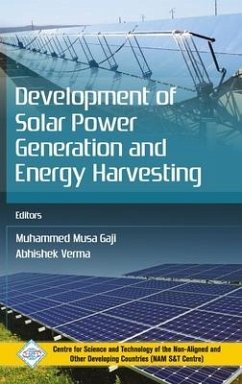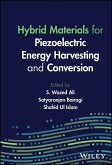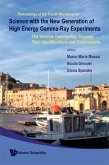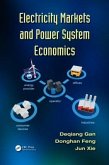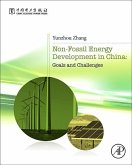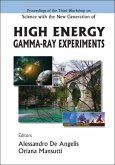The global demand for energy is currently growing beyond the limits of installable generation capacity. To efficiently meet the future energy demands, energy security and reliability needs to be improved and alternative energy sources required to be more aggressively investigated. An effective energy solution should be able to address long-term issues by utilising alternative and renewable energy sources. Of the many available renewable sources of energy, solar energy are clearly a promising option as it is abundantly available at most places and is also the cleanest energy resource on our planet. Solar power, especially as it reaches more competitive levels with other energy sources in terms of cost, may serve to sustain the lives of millions of underprivileged people in developing countries. The recent trends are to decrease the cost of the energy generation either by introducing the low cost processing techniques or by enhancing the efficiency of the solar cells. After the 1st and 2nd generation of the bulk silicon based - and thin-film Si/CdTe/CIGS based solar cells, the 3rd generation technologies are underway. The new technologies include photo-electrochemical cells, polymer solar, quantum dot, tandem / multi-junction, up-conversion and down-conversion, surface plasmonic and nano-crystal solar cells and other novel innovations and inventions. To deliberate on the current trends in solar power generation, its harnessing, storage, solar energy conversion, processing technologies, modeling and simulation plus engineering of the small solar energy generation plants and related issues, the Centre for Science & Technology of the Non-Aligned and Other Developing Countries (NAM S&T Centre) jointly with the Amity University, UP, India - Dubai Campus organised an International Workshop on 'Trends in Solar Power Generation and Energy Harvesting' in Dubai during 27-29 March 2017 which brought together the senior experts and professionals from 23 countries to a common platform. The present book edited by editors Engr. Muhammed Musa Gaji and Dr. Abhishek Verma is a follow up of the above workshop and comprises 20 scientific papers by the authors from 17 countries covering several issues related to the status and trends of solar power generation, designing of solar cells, risk assessment of solar power plants and many other topics. The book will be an asset to the researchers, policy makers in government departments and ministries and non government organisations engaged in renewable energy related issues in the developing countries.
Hinweis: Dieser Artikel kann nur an eine deutsche Lieferadresse ausgeliefert werden.
Hinweis: Dieser Artikel kann nur an eine deutsche Lieferadresse ausgeliefert werden.

